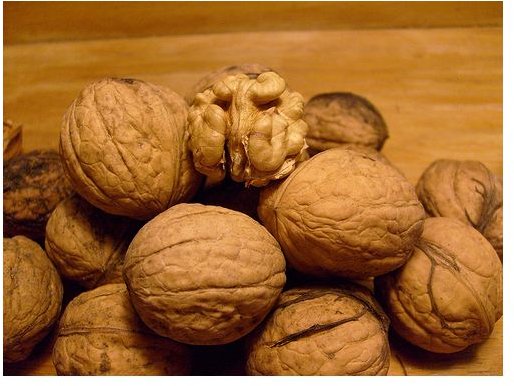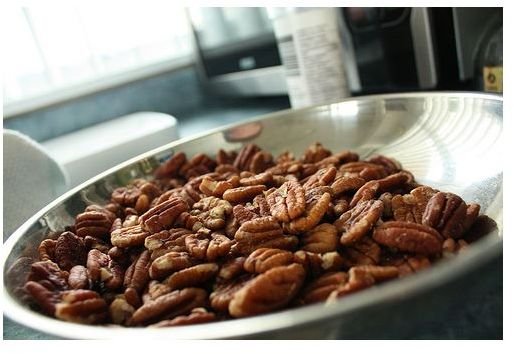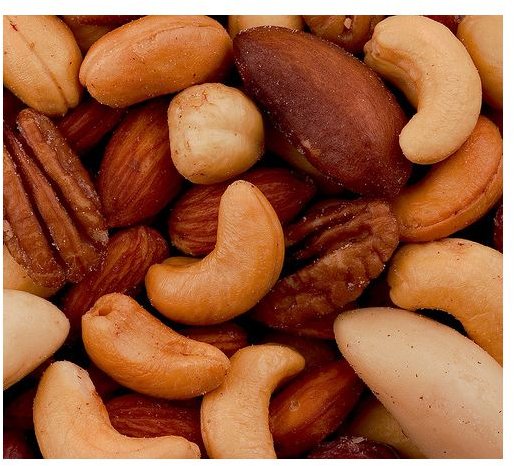Which Are the Healthiest Nuts to Eat?
Nuts Are Good for You
Nuts have a bad reputation for being an unhealthy snack food because they are so high in fat. While nuts by nature, do have a high fat content, even this characteristic makes them a heart-healthy, beneficial snack. Nuts are rich in healthy unsaturated fatty acids. Eating them regularly actually helps to lower cholesterol levels, lowering your risk for heart disease.
This is not the only reason that nuts are a healthy snack. High in fat, but also protein, nuts are an energizing, sustaining food, supporting healthy blood sugar levels and staving off food cravings associated with a high-carbohydrate diet. From walnuts to Brazil nuts these foods are an excellent source of fiber. A high fiber diet is good for heart health, for improving digestion, preventing some diseases, and even for weight loss. Even better, nuts tend to be concentrated sources of important nutrients such as vitamin E, magnesium, and selenium.
Fresh, unsalted nuts are an important part of a balanced diet, but what are the healthiest nuts to eat? There are so many varieties which ones should you add to your diet?
Walnuts
Walnuts are some of the most nutritious nuts because of their very high content of omega-3 fatty acids. Omega-3’s are important for lowering cholesterol, nourishing the skin, supporting brain health, and even reducing inflammation. These tree nuts supply 94 percent of the daily recommended requirement for this essential fatty acid in a one-quarter cup serving.
Walnuts are also rich in tryptophan, the amino acid that promotes a healthy production of serotonin, thereby helping to stabilize mood. It is also high in vitamin E, which acts as a protective antioxidant, manganese, a mineral for nerve and immune health and blood sugar regulation, and copper, which is important for the formation of new tissue as well as the healing process. These nuts are also packed with antioxidants such as

phenolic acids and flavonoids, which help to protect cells from free radical damage. The antioxidant content of walnuts ranks as high as some of the most important sources of these phytochemicals, having a higher concentration than strawberries, artichokes, and even coffee.
Almonds
Almonds are also one of the healthier nuts that you can eat. They are not packed with omega-3 fatty acids like walnuts are, but they are very high in omega-6 fatty acids and only have one gram of saturated fat per one-ounce serving. They are mineral-rich, with plenty of magnesium, which is important for healthy bones, cardiovascular health, and proper nerve and muscle impulses. Manganese, copper, calcium, tryptophan, vitamin E and several B vitamins are all found in almonds. These nuts supply about fourteen percent of the daily requirement for dietary fiber in one serving and have six grams of protein.
Pistachios
Usually found as stand-alone nuts, these greenish-brown tree nuts are packed with beneficial vitamins, minerals, and antioxidants. They are rich in copper and manganese as well as several B vitamins, which are important for a healthy nervous system and energy production. Pistachios are also high in fiber, with three grams per serving.
Researchers have found that eating a handful of pistachios a day helps to reduce the risk for cardiovascular disease by lowering LDL cholesterol levels. This is due to the beneficial fat content, but also to the nutrients found in these nuts. Pistachios are very high in lutein, beta carotene, and vitamin E, all which act as antioxidants, preventing the oxidation of LDL cholesterol.
Macadamia Nuts
Small, rich, and delicious macadamia nuts are thought of as more of a treat then a health food. While they are very high in fat, with almost 21 grams per ounce, they are a good source of a balance of fatty acids, with both omega-6 and omega-3 fatty acids, as well as three grams of saturated fat. Eating macadamia nuts once in awhile is a good way to lower your risk for heart disease while supplying a filling source of manganese, copper, magnesium, and B vitamins.
Pecans

Pecans are another type of healthy nut. Oily, sweet, and great alone or in desserts, eating pecans helps to lower LDL cholesterol levels and protect cells from free radical damage. Pecans have healthy unsaturated fatty acids. They are a good source of vitamin E, folate, calcium, magnesium, phosphorus, potassium, and B vitamins, as well as fiber and protein.
Brazil Nuts
Brazil nuts are one of the healthiest types of nuts because they are so high in important nutrients, especially the antioxidant mineral selenium. Selenium inhibits the oxidation of lipids and is even more effective when consumed with vitamin E, which is found in Brazil nuts as well. Eating one or two of these nuts a day would be like taking a natural selenium supplement. Because this mineral is not required in high amounts, and can in fact accumulate in tissue if consumed in excess, these healthy nuts should not be eaten every day. Pregnant women especially should only snack on Brazil nuts on occasion.
One one-ounce serving supplies two grams of dietary fiber, four grams of protein, and 19 grams of fat, with only four grams of saturated fat. These nuts are very high in omega-6 fatty acids. Aside from the high concentration of selenium, Brazil nuts are also a good source of magnesium, copper, and manganese.
These are some of the healthiest nuts to eat. Heart-healthy, good for promoting weight loss, and rich in protective antioxidants as well as important vitamins and minerals, all nuts have nutritional benefits. Eat a variety and make them a regular part of your diet. You only need to eat an ounce a day to enjoy the many health benefits of nuts.
References
California Walnuts https://www.walnuts.org/walnuts/index.cfm/health-professionals/walnut-nutrition-information/antioxidants/
World’s Healthiest Foods https://www.whfoods.com/genpage.php?tname=foodspice&dbid=99
Balch, Phyllis A. “Prescription for Nutritional Healing.” Fourth Edition (Penguin Books, 2006).
Office of Dietary Supplements, National Institutes of Health https://ods.od.nih.gov/factsheets/selenium/
Pistachio Health https://www.pistachiohealth.com/health-care-professional/nutrition
“Pistachios Lower Cholesterol, Provide Antioxidants.” (Science Daily) https://www.sciencedaily.com/releases/2007/04/070430125516.htm
WebMD https://www.webmd.com/cholesterol-management/news/20000424/macadamia-nut-cholesterol
National Pecan Shellers Association https://www.ilovepecans.org/nutrition.html#antioxidants
photo by S58Y
photo by Inyucho
photo by Futurestreet
